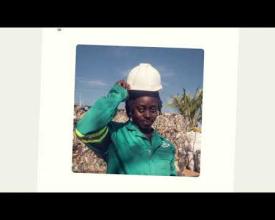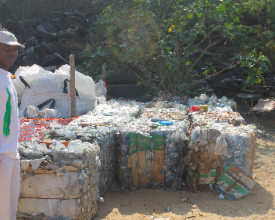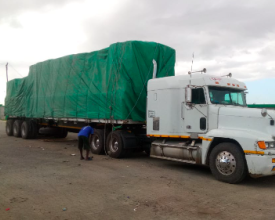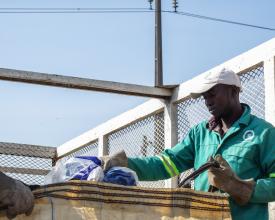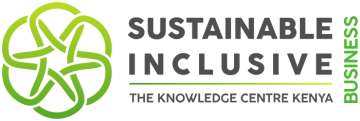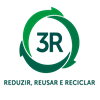
Establishing plastic value chains in Vilanculos, Mozambique
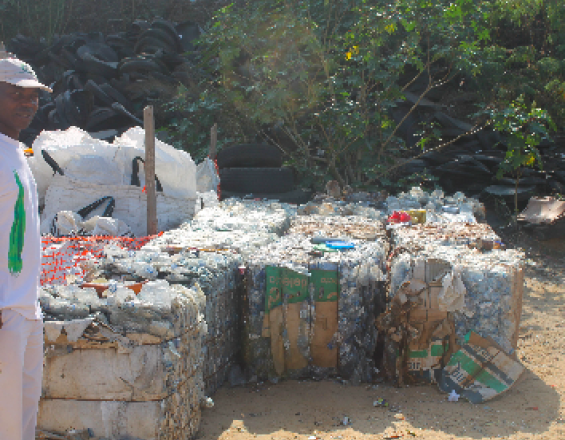
Vilanculos is a small paradise with rich biodiversity along the Indian Ocean in Mozambique, which has been suffering from marine litter for decades. The purpose of this project is to reduce the amount of plastic leakage into the ocean in this city. The project established eco-points in Vilanculos, where plastic waste materials is collected at cost by waste pickers, local residents and organizations. The material is sorted, processed, and sent to recyclers within and outside Mozambique. The various partnerships and advocacy actions carried out has resulted in an increasing collection of plastic waste. This has significantly improved the local marine environment due to the plastic management system put in place.
3R works on creating integrated solutions for waste produced in Mozambique. The company is committed to the circular value chain contributing to the circular economy.
Context
Challenges addressed
- Inadequate markets of recycled plastics as well as the closure of markets due to COVID-19 restrictions leading to low oil prices and lack of recycled/processed plastics.
- COVID-19 pandemic severely affected the tourism sector leading to the closure of most hotels leading to low plastic waste collection resulting in low revenue and disruption of the constant flow of plastics.
- The location of one of the Eco-point was near a school resulting in cases of child labour due to high poverty levels experienced in the region, which was also exercabated by the closure of schools as a result of COVID-19.
- Lack of plastics waste management data, due to poor data collection skills among both private and public sector agencies.
- Poor fast-tracking of invention and innovation associated with circularity aligned to plastic waste management due to inadequate technical skills among young people due to poor education transition rates.
Location
Process
Summary of the process
Advocacy and partnerships were critical cogs in the success of this project. Advocacy was a primer in preparing the enabling environment for the establishment of the eco-points in Vilanculos, where plastic waste materials will be collected at cost from waste pickers, micro-enterprises, and local residents and organizations. Partnerships developed the structure into which each partner collaborates and achieves milestones.
Building Blocks
Partnerships
Partnerships have been very key in getting stakeholder buy-in as well as ownership on the project. The proposition in the partnerships aimed to decentralize the ownership of the eco-points, spur collections rates and develop a seamless sustainable plastic waste value chain.
During the last 12 months, 3R established various partnerships with different stakeholders. One of the partnerships was with an NGO, ParCo, whereby they established two eco-points, to receive and buy plastic waste from the local community waste pickers.
Enabling factors
Continuous stakeholder engagement was cited as an important platform in ironing out issues among partners involved in the implementation of the project
Lesson learned
- Planning collaboratively is imperative in harnessing synergies as well as allocating responsibility going forward.
- Co-creation exercises informed the gaps and opportunities to strengthen aspects of the waste value chain as well as providing the assistance that each stakeholder needed.
- A partnership is only but a means. Continuous communication is vital to keep partnerships strong and robust to deliver their objectives.
Advocacy for development
Implementation of advocacy among various stakeholders was very vital in the creation of awareness on sustainable plastic management. As part of the project, there was a communication awareness campaign as well as nine open-air events to encourage the reduction or better management of plastic waste at source.
Enabling factors
- Knowledge transfer workshops were held every quarter to update various stakeholders on the extent of the implementation of the waste management strategies, including sharing targets.
- Capacity building workshops were critical to access information as well as to agree on targets, which harnessed accountability for their achievement.
- Campaigns were very critical in enhancing awareness of waste segregation at source, including rally community groups to be change agents.
Lesson learned
- Develop networks and sustain them through constant communication and updates as well as incentives for impetus.
- Enhance local capacities to make actors of change and own the project by outlining its benefits.
- Support partners to be agents and allies of sustainable waste management, including the development of implementation plans together.
Impacts
- Various partnerships with different stakeholders has resulted in the establishment of new eco-points in the city.
- Setting up a Material Recovery Facility (MRF) went a long way to enhance sorting, processing, and sending the material recovered to recyclers within and outside Mozambique.
- Waste volumes in local dumpsites has been reduced and recycled volumes have increased. The current waste production is approximately 19 tons/day, 2.7% being plastics as a result of the project. In total the organization manages to collect 6 tons of waste material that is been recycled.
- Selling and sending the processed material to recycling industries in Mozambique and abroad was very welcomed as it led to opened markets for exploitation leading to increased sales.
- Awareness has been raised with the local population for reduction of waste, including, better management of plastic waste at source.
- The marine ecosystem has drastically improved due to the plastic management system established, including regular beach clean-up exercises by young people and waste pickers.
Beneficiaries
- Waste pickers.
- Local communities, including youth and women groups.
- Environment.
- Local NGOs.
- Municipal Council.
Sustainable Development Goals
Story
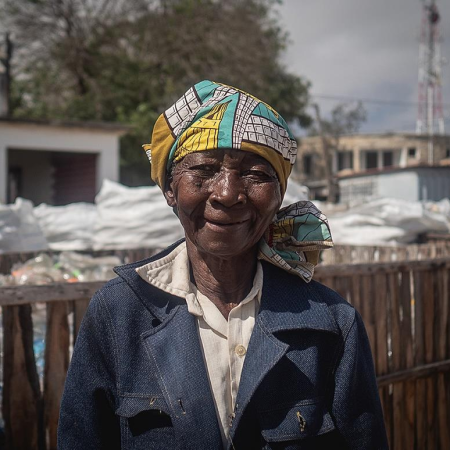
Vilanculos is a small paradise in central Mozambique. It is located in front of the Bazaruto Archipelago, the country's first declared marine protected area.The beautiful beaches and the rich wildlife at the Indian Ocean coast have, however, been suffering with marine litter. Most of the waste produced in Vilanculos remains not collected or end up in a local dumpsite or the environment. But the eco-points are in operation now, opening the door for change.
Teresa Navelane started collecting recyclables three months ago. With the money she gets from delivering the material, she buys basic food items. “I think this project helped (the local Community). Now we have a fixed place to sell our material and can have some income”, says Teresa.
